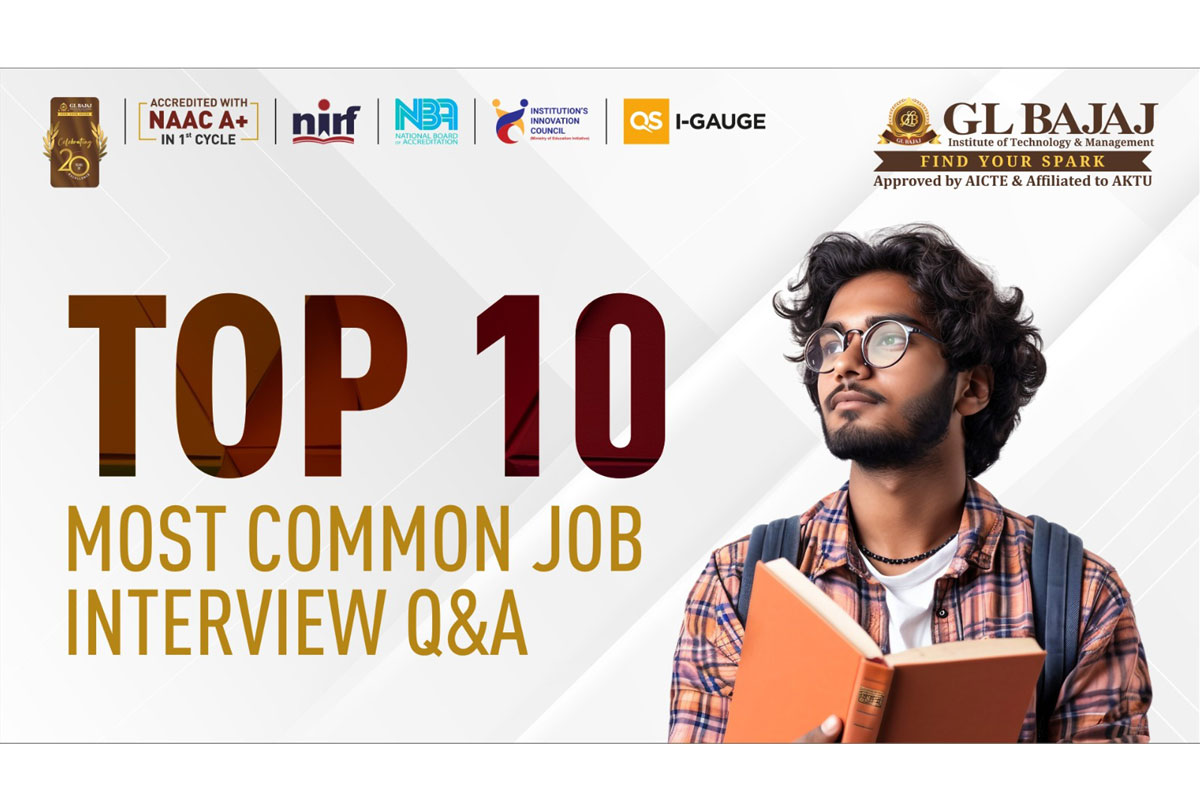A Job interview is a professional meeting between an interviewer and interviewee or a company hiring manager and a candidate to check whether the applicant is perfect or suitable for the position which they have applied for. There are mostly three rounds for an interview in any organisation such as Introduction, Technical & final round. Also, it can vary company to company.
There are various common questions and Answers which an applicant prepare for:
Tell me something about yourself or Introduction: this is the most common question every interviewer will ask in your first round. A candidate has to be short and very clear about themselves as a lot of points you have already mentioned in your resume or CV. Majorly explain about your experiences and education you have done so far. Whenever you answer this question, be focused about what you are telling them as it’s written in your resume as well, so you cannot mould your answer.
Biggest Strengths and weaknesses: Be specific and straight about this question while answering, also answer this question with an example such as prove your strength and show them that you can handle this very well. In short, prove the quality you have.
Goals after five years: This question typically comes into one of the two categories. Some candidates try to show their ambition with a very clear answer like, I want your job! ” Others lean towards humility, give more reserved answers such as, “There are various talented people here—I just want to do good work and see where it takes me.” In both the cases, you gain some real insight—except from how well the candidate can present themselves. A more revealing question to ask would be: “If you could start your own business, what would it be? This question comes in any type of organization, because an entrepreneurial mind set is valuable in every role. Their answers can uncover genuine interests, motivations, passions, the type of work they enjoy, and the kind of people they collaborate best with. Just ask—and listen.
Why should we hire you: Most Common question interviewers ask from a candidate, why should they hire you? While answering this question a candidate should be very focused and clear in his thoughts what values they can put to grow the organisation and what is the uniqueness a candidate has compared to others. Sometimes you just need to show your strength in the right way so the employer can understand your skills properly before hiring or coming to a decision.
How did you get to know about this opportunity: Always remember that you need to answer this question very carefully. Be wise, and tell them that you found this opportunity from your colleague or a current employer of this organisation, by answering this they will understand that you are already aware of the work and culture of this organization and it will be easy for you to settle well in the company.
Why do you want this job: Now go deeper and answer this question with a confidence that they should know why you actually want this job, and don’t just speak about the organization. Talk about the position, for which you have come for and answer it with perfection.
Describe your dream job: Always answer with relevancy and talk about the lessons you have learnt from your previous organisation and what the hurdles are you have overcome with. Every person learns or develops new skills from every organisation. Take a moment and then think about the job you’re interviewing for that will help you with the correct answer and then describe how those learnings apply to what you hope to someday.
What is your leadership quality: When you talk about your leadership quality, always remember that you have to explain this with an example or your past experiences. Share the situations you have dealt with, it is quite a tough question, you don’t have to talk about small achievements, always talk about for which you have been rewarded. Explain what you have done in your past organizations and that will give the interviewer a clarity of how you lead.
What do you like to do outside the work: Many companies often look at your outside interests to judge how well you might integrate with the team. That said, avoid the temptation to exaggerate hobbies just to impress. Instead, highlight activities that show personal growth you’re working on. Always combine these with realistic personal details. For example: “I’m currently raising a family, so much of my time is devoted to that, but I’ve been using my spare time to work on my other interests.
What was your last salary withdrawn: This is a tricky question. It’s important to be honest, keep in mind that most of the employers use this as a starting point for negotiations.
The interviewer should answer directly or may push a bit. If that happens, you’ll have to decide whether to share the salary or politely avoid it. In the end, your response won’t make or break the offer. You will ultimately evaluate the salary based on what you believe is fair.
Any Questions for us: Never miss this opportunity and recall the points which you would like to ask or highlight. Ask questions very smartly, not just the way you want to show your smartness or show that you are a great candidate, but also to see if the organisation is fit for your career growth.
Conclusion: These are the major questions, which you need to know and understand how to answer wisely. These questions can be a deal breaker for any individual who is desperately looking for a job change and do not want to miss the opportunity which they have found.Be focused, be prepared, be presentable, be aware and then move ahead for any interview.
